Emergency Preparedness Kits: Bug-Out Bags, First Aid Kits, and More
Posted on October 09, 2025 By Alison P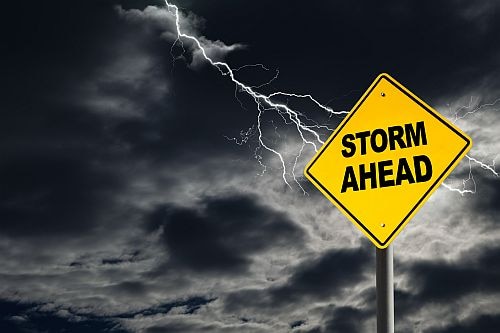
No one wants to think about the next big storm, flood or emergency that could leave you and your family without power or trapped within your home. That's why it's so important to be prepared for anything and everything - even the zombie apocalypse! Yes, we know the chances of the walking dead happening is pretty much zero, but when it comes to any disaster, it never hurts to be overprepared.
In any disaster scenario, it's important to have a well-stocked emergency survival kit and a backup power source. Check out our disaster preparedness guide for a complete list of supplies to have on-hand in case an emergency arises.
How to Prepare for a Power Outage
During a bad storm or a heat wave, it's important to keep in mind how to prepare for a power outage. A portable generator is a great device that can help keep your lights on even in the event of a prolonged loss of power. It may even be a lifesaver to those who rely on electric-powered machinery to help with their health, just be sure you know how to use a generator safely.
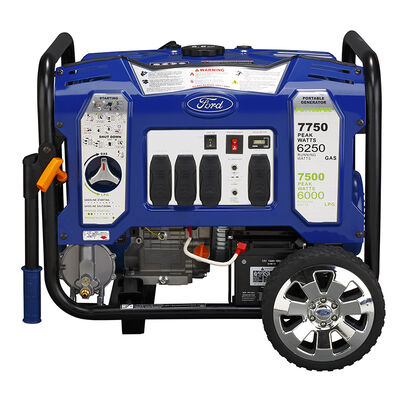
If you don't have direct access to a generator, or you can't have one where you live for one reason or another, then there are a few other things you should keep around in the event that your home loses power. To make sure you can see around the house you'll need flashlights, candles, a lighter, and matches. If your power is out for an extended period, then you're going to need to have a way to listen for updates on your situation. Make sure to get yourself an AM/FM radio to keep yourself updated, along with some batteries to keep it ready for use. In the same vein, you should invest in a portable charger so you can keep important electronics charged, and a corded phone so you can still make calls. Finally, having a way to keep your food fresh will be essential. Coolers will keep your food refrigerated for a short time. You can also store ice packs in your cooler in case someone gets hurt.
What to Pack in a First Aid Kit
Even if there isn't a disaster, it's important to always have a well-stocked first aid kit on hand. You may not always be able to get medical attention quickly and may need to address injuries on your own until you can access help. Minor injuries could become worse if not properly and immediately treated. Here are some basic first aid kit supplies:
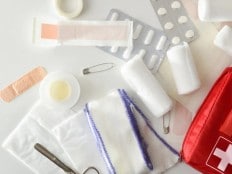
Dressings and Bandages
Try to keep bandages and sterile gauze pads of various sizes around, along with an extra roll of gauze. It also helps to have elastic bandages for specific injuries, and triangular bandages for wrapping injuries. Having sterile cotton balls and cotton swabs will also be helpful for disinfecting cuts.
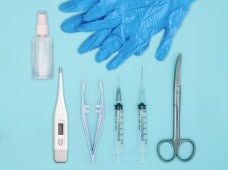
First Aid Equipment
As far as first aid equipment goes, it's always best to have the basics like medical gloves, syringes, a thermometer, tweezers, small scissors, hand sanitizer, and blankets. These supplies should be able to help in most cases, but it might also be best to have some safety pins to help fasten splints and bandages, along with a finger splint, a turkey baster to flush out wounds, and a breathing barrier for giving CPR. This may seem like overkill, but when your safety is in jeopardy it's always best to be overprepared.
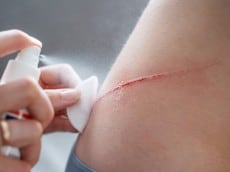
Medicine for Treating Injuries
Try to keep a supply of antiseptic solution, or wipes, antibiotic ointment, sterile eyewash or saline, calamine lotion, which is for stings or poison ivy, and hydrocortisone cream for itching. These basic medicines should help you handle nearly any small injury situation that can be dealt with at home.
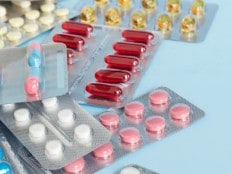
Other Medicines
The other major meds you should consider keeping around are for when someone gets sick. You should try to at least have ibuprofen or aspirin for treating pain or a fever, and an antihistamine to treat allergies. Then you should get your hands on basic cold meds like decongestants, and meds that can help treat an upset stomach, like anti-nausea, and anti-diarrhea medications. Of course, try to keep a supply of the prescription medications that those in your household need. Only you know what specific members of your family need, so try to make a list and get everything together before something happens.
What is a Bug-Out Bag?
Bug-out bag is just another term for an emergency supply kit, or a go bag, that could help you survive if you need to evacuate, or bug-out, in the event of a disaster. This 72-hour pack is a grab-and-go disaster preparedness kit that usually contains enough essentials to last three days. Below is a convenient list of everything you will need for the perfect bug-out bag.
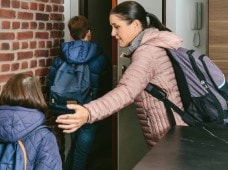
Quality Backpack
It's important to make sure you can actually carry what you pack, especially if you need to be agile in a flood. Backpacks make a great option for stashing supplies because they leave your arms free and balance the weight of the load on your back for easier carrying. You need one for yourself and one for each member of your household, with enough storage capacity for three days' worth of supplies for everyone. Don't forget your pets, too!
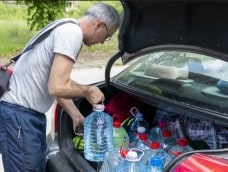
Water
FEMA recommends three gallons of water per person to last 72 hours. However, that recommendation includes cleaning water as well as drinking water. Three gallons of water weighs 25 pounds and that's a lot to carry. Consider purchasing a two-gallon water carry bag, making it less weight and easier to store. You may also want to consider something with electrolytes and carbohydrates like Gatorade or Powerade.
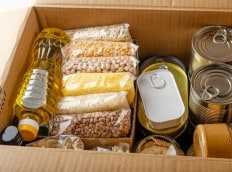
Food
You will want to pack non-perishable items with far-off expiration dates. Peanut butter is always a good choice, and things like whole wheat crackers, nuts and trail mix, cereal, and granola bars and power/protein bars all have great nutritional value when you're on the move. Canned tuna, salmon, chicken, and turkey can be great sources of protein, and canned veggies and soup are easy to cook up too with limited resources. If you have a young child who needs formula, or another family member with dietary restrictions, then make sure you pack whatever extra items you need. Multivitamins are always a good thing to have around, too.
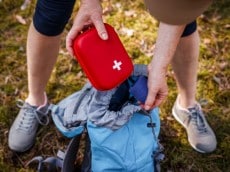
First Aid
In addition to the comprehensive first aid kit described above, all of your kits should have small individual first aid packs that include the basic first aid supplies and a first aid manual. Check out small camping first aid kits for purchase, or for an idea of how to assemble one yourself. Remember to think of the individuals in your household. Does anyone require specific medications? Be sure to add that to their kit.
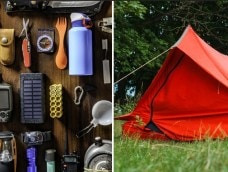
Additional Supplies
Having some of the things mentioned earlier can be helpful on the go, like flashlights and AM/FM radio. A pocketknife or multi-tool can be helpful in a pinch, and a can opener for your canned food is also a necessity. You can also invest in an instant pop-up shelter or tube tent if you need to spend the night outdoors, or space blankets at least. You're also going to want some personal toiletries, for comfort of course. Some other things to consider are extra weather-specific clothes, diapers, feminine hygiene products, and toothpaste and toothbrushes. If you have pets with you, then make sure you bring some supplies for them, like kibble, extra water, a bowl, a crate, and any medications they may need. It's always great to bring extra cash, a list of emergency phone numbers, a map of the local area, and your important documents in your bag too.
We hope this guide will help you get started with preparing you and your family for a possible disaster. In emergency situations, local officials and relief workers will be on the scene, but they cannot reach everyone immediately. You could get help in a few hours, or it could take days, and that is why it's so important to be prepared.
For more information about being prepared and keeping your family safe during an emergency, check out the American Red Cross preparation resources. Stay safe!
